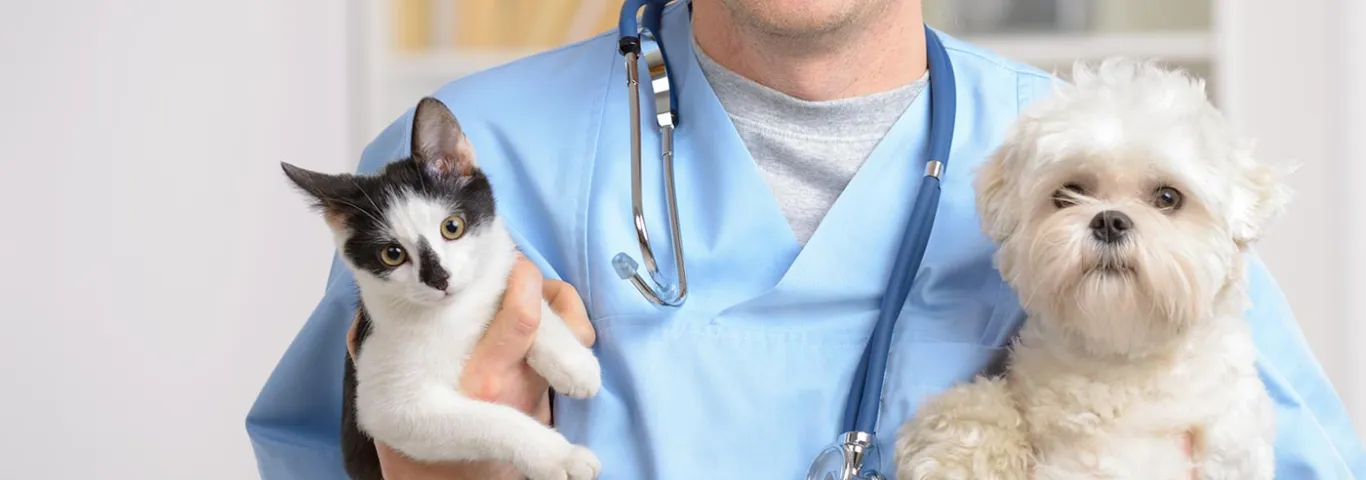Employment opportunities for veterinarians include such diverse areas as clinical practice, teaching, research, regulatory medicine, public health, and military service.
Private or Corporate Clinical Practice
In the United States, approximately two-thirds of veterinarians work in private or corporate clinical practice.
Teaching and Research
Veterinary college faculty members conduct research, teach, provide care for animals in the veterinary teaching hospital, and develop continuing education programs to help practicing veterinarians acquire new knowledge and skills.
Research veterinarians employed at universities, colleges, governmental agencies, or in industry (including pharmaceutical and biomedical firms) find new ways to diagnose, treat, and prevent animal health disorders. In addition to a veterinary degree, these veterinarians often have specialized education in fields such as pharmacology, toxicology, virology, bacteriology, laboratory animal medicine, or pathology.
Regulatory Medicine and Public Health
To prevent introduction of foreign diseases into the United States, veterinarians are employed by state and federal regulatory agencies to quarantine and inspect animals brought into the country.
Veterinarians serve in city, county, state, and federal agencies investigating animal and human disease outbreaks, the effects of pesticides, industrial pollutants, and other contaminants on animals and people and also protect the health and safety of animals and people through their work in developing disease surveillance and antiterrorism procedures and protocols.
Other Professional Activities
Veterinarians can specialize in areas such as zoologic medicine, aquatic animal medicine, aerospace medicine (shuttle astronauts), animal shelter medicine, sports medicine, animal-assisted activity and therapy programs, military service, and wildlife medicine.

